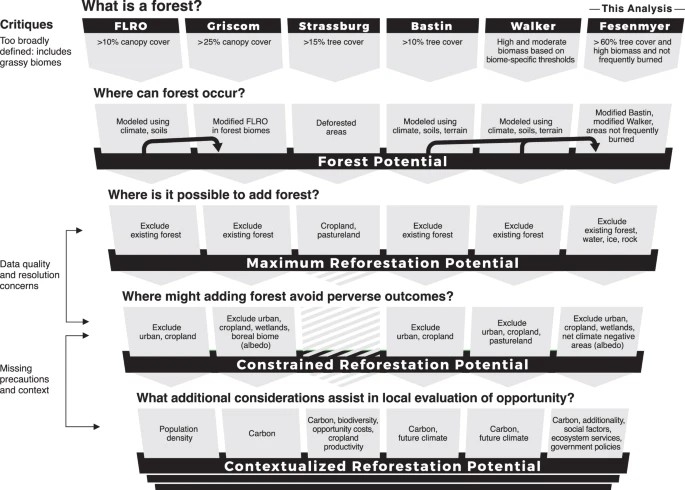Researchers, including Dr. Mohammed Armani from the College of Agriculture and Natural Resources (CANR), have developed the most accurate global maps to date, highlighting areas where reforestation can effectively combat climate change.
Published in Nature Communications, the study draws on findings from 89 previous research projects conducted at various scales and presents eight reforestation scenarios, each with different objectives.
The new maps identify areas least likely to involve trade-offs with other critical priorities, such as wildlife habitat, food production, and freshwater availability.
This refinement reflects the inclusion of key ecological considerations often overlooked in earlier studies.
By integrating the latest scientific data with a conservative methodology, the researchers identified 195 million hectares (Mha) of land globally suitable for reforestation, a figure 71–92% smaller than previous estimates.
The study also outlines both the risks and opportunities associated with tree-based climate strategies in Africa.
Dr. Mohammed noted that large-scale tree planting in grassy and open ecosystems can cause significant ecological and social harm, with limited scientific evidence supporting such interventions.
The new maps serve as a tool for smarter, more strategic climatic action. They help decision-makers prioritize areas where limited reforestation resources can deliver the greatest impact with minimal trade-offs.
Importantly, the maps promote a “people-centred” approach to climate action, considering land rights, livelihoods, and biodiversity conservation, factors that are especially crucial in regions like Africa, where communities rely heavily on natural resources.
“Our goal for this study was to right-size the estimate of how much reforestation can contribute to climate change by mapping where trees can actually be planted or regrown with minimum trade-offs and maximum benefits for people and nature,” explained lead author Kurt Fesenmyer, Forest Spatial Data Scientist with The Nature Conservancy’s global Natural Climate Solutions (NCS) team.
- Home
- About us
- Academics
- Admissions
Admissions
- Research
- Media & Press
- Students
Students
- Staff
- Alumni
News
Media & Press
Researchers identify high-impact zones for global reforestation

















